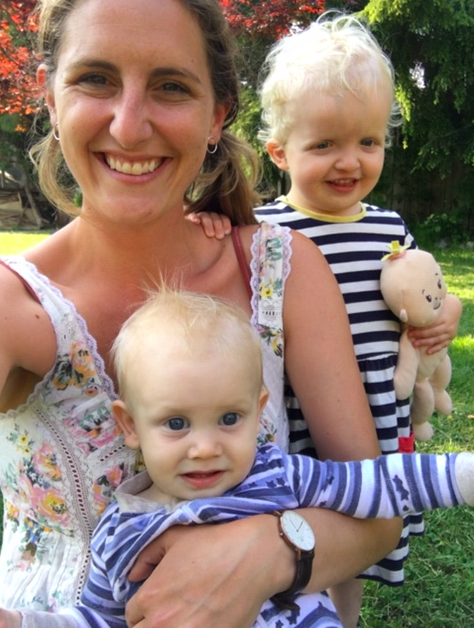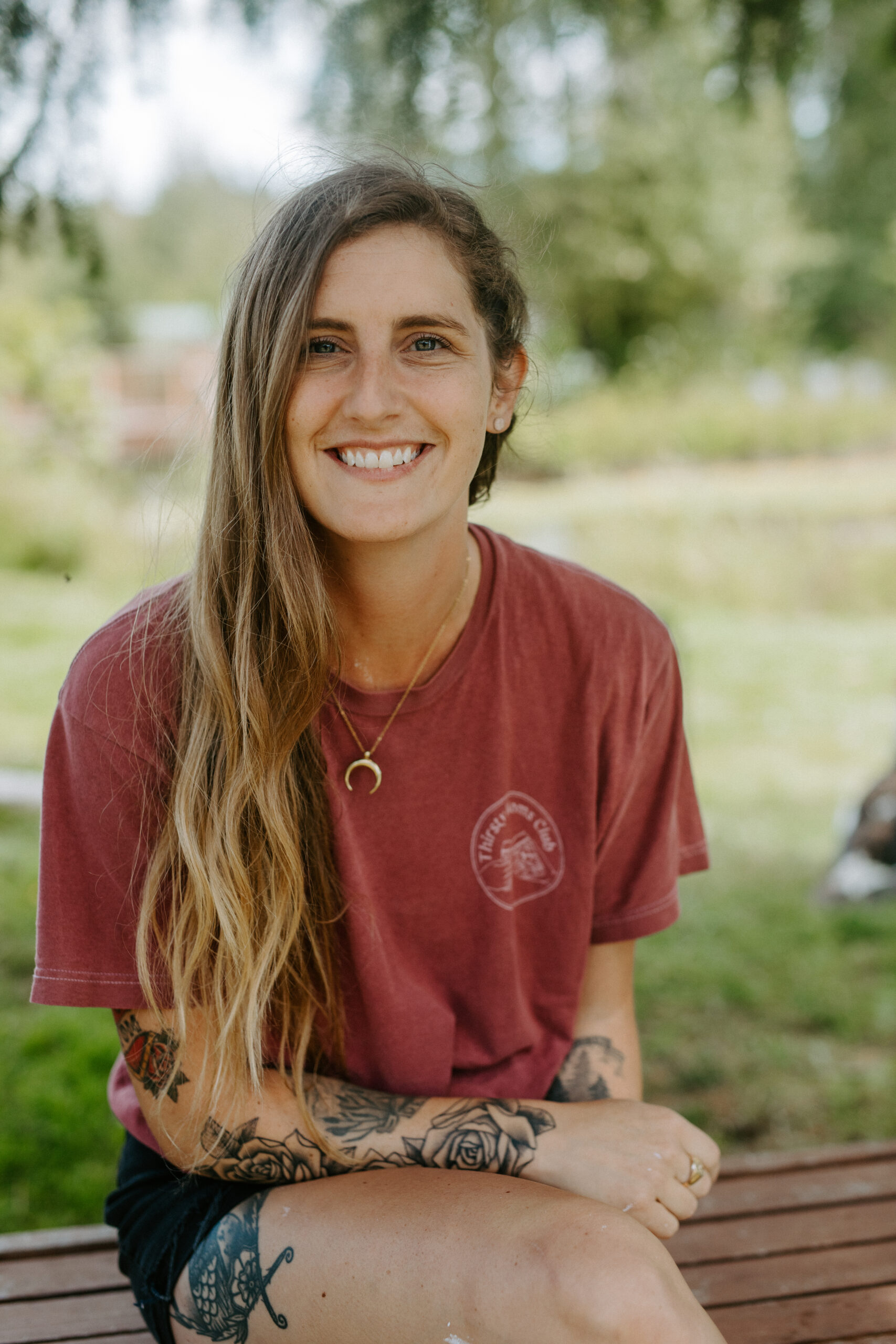Photo by Charlein Gracia via Unsplash.
By Jess Procter
@north_west_jess
We live in an age of rampant opinions. On paper, we have the freedom to think and say what we want, but this often takes the form of judgment: telling other people how they should be living their lives, spending their money, doing their jobs. Sometimes we even think it’s our right to tell others how they should feel or react to things that are their own experiences – and don’t even get me started on mansplaining *insert eye roll emoji*. While we’re all technically entitled to our own opinions we should perhaps draw the line at imposing them on our unsuspecting offspring, particularly when it comes to things that are not our choice and maybe not even our child’s choice (#bornthisway).
Gender Rev-olt: Confusing Biology with Behaviour
From the moment we announce a pregnancy, the sex of the unborn child becomes a major talking point. Friends and family ask what we’re hoping for, or if we know “what we’re having.” The fascination we have with gender has become so all-consuming that people are now doing Gender Reveal parties with divisive and sometimes ridiculous themes that go way beyond the classic Pink or Blue trope. Somewhere along the way we’ve confused sex (biology) and gender (performance). Themes like Wheels or Heels, Touchdowns or Tiaras, Bikinis or Boardshorts, Ruffles or Rifles (barf!) belie an expectation that an unborn child will adhere to the strict gender norms that are laid out for them before birth. But as we know now, thanks to famed gender theorist Judith Butler, “masculine and feminine roles are not biologically fixed but socially constructed.” Turns out that having a vagina doesn’t really correspond to an innate love of lipstick and having a penis doesn’t make a person more inclined toward sports. Turns out we just like what we like as individual human beings. Who knew!? In light of this shocking revelation I propose we just rename them what they are: Genitalia Reveal parties. Think of the themes that we could emblazon on the cakes: Clits or Dicks! Knobs or Fannies! Members or Minges! Wow, I just Googled slang terms for private parts and it’s a weird world out there. Let’s move on.
Boys Will Be Boys: ReDefining Masculinity
When it comes to kids, from my observation, it seems easier for us to accept girls with masculine preferences than boys with feminine ones. Girls playing with trucks, learning to code or excelling at sports are cool but many folks are still dangerously dead set against boys doing things that are traditionally considered to be feminine like caring for a doll or painting their nails. I once overheard a boy in a parking lot tell his dad that he wanted to drive a minivan instead of a truck and the dad responded by saying “you probably wanna wear a pink dress, too.” His son was two years old. A friend of mine was at the park with her son when a complete stranger told her that if she didn’t cut his gorgeous, long hair into a “real” haircut before he started school he would feel “confused” about who he is. What’s more confusing is how a stranger feels comfortable commenting on the choices of a mother and child that she doesn’t know. Or having to explain to a child why anyone, anywhere gives a shit about what he does with his hair. You know the phrase “boys will be boys”? Let’s rewrite that as “boys will be able to choose what and who they want to love without coercion or shame from the adults who are supposed to be teaching and encouraging them.” It doesn’t fit as nicely on a bumper sticker but maybe more cis-boys will grow up to not be such assholes. Besides, research shows that there’s a link between men who have rigid sexist beliefs and men who carry out gender-related violent crimes. So… there’s that. Let’s not shame boys (or any children!) who have emotions or are expressing preferences that we may deem unconventional.
PlayDating: Leave Those Kids Alone
When our same-sex babies have a playdate we love to talk about how they’re going to grow up to be BFFs. We talk about how our two little baby boys or two baby girls who are already sharing fishy crackers and clothes (because: poo-splosion) will grow up and play video games and have sleepovers and go to clubs hand in hand. But if we have a playdate with one baby girl and one baby boy all of a sudden the narrative changes and it’s a First Date. I’ve seen parents talk about Future Boyfriends and Future Girlfriends and rivalries in the making when another baby girl shows up at the playdate “trying to steal” the other baby’s “boyfriend.” Um, what? They’re literally passing the same soggy strawberry back and forth, not trying to hook up. The only person a baby wants to go home with is their mama and before you cast your argument about how it’s all in good fun please consider how influential we parents are and how the language and behaviour we emulate and normalize makes a huge impact on our impressionable children. Speech is powerful and the problem with these baby “dates” is twofold: one is that obviously we’re assigning a sexual orientation to a baby who is many, many years away from being able to (or needing to!) articulate his/her/their sexual preferences and identities. Not every boy likes girls and vice versa. If we constantly reaffirm heteronormative coupling we run the risk of raising kids who are intolerant of others or who don’t think that their own sexual orientation is acceptable. The second problem is that our kids may grow up not realizing that a boy and a girl can just be friends. They’re eating sand for god’s sake, not on a first date. Let kids be kids!
Listen, I’m not trying to make a case for the abandonment of gender pronouns in babies or never dressing our kids in pink or blue colour schemes. In fact, that whole first year can be super difficult so I’m all about dressing your baby up in every stupid looking outfit you can find – whatever gets you through with your sanity intact! But sometimes it’s tough to remember that our young children are separate from us (especially when they follow you around so obsessively that you haven’t gone to the bathroom alone in two years) and that the sense of ownership we feel over them is actually a sense of responsibility. While they’re ours to love, nurture, discipline, and teach, they are still their own people with their own little souls. Ideally we’ll contribute to them becoming well-rounded, open-minded, confident and engaging adults with cool interests who are kind to others, but they might love differently than we expect them to. They might behave differently than we want them to. They might choose not to have children despite the fact that we’ll end up desperate for grandkids like every other 50-something out there. They might choose a career path that we don’t think is a great fit for them or even a religion or worldview that we don’t understand. It’s not our place to judge, it’s our place to let our kids know that we have their backs no matter what their choices may be, and that starts when our kids are young. It should be our goal to not just accept (or tolerate!) them for who they are but to really try to create space for them to discover their own identity and then help them find a place in this world that recognizes and celebrates them just as they are. There’s enough shame and judgement in this world without our kids receiving it at home.

Jess Procter is a city girl turned rural garden mama on the Sunshine Coast. She is passionate about cultivating a non-judgemental environment where mamas and papas can share their experiences of real, raw parenthood and is attempting to create that community on Instagram.




